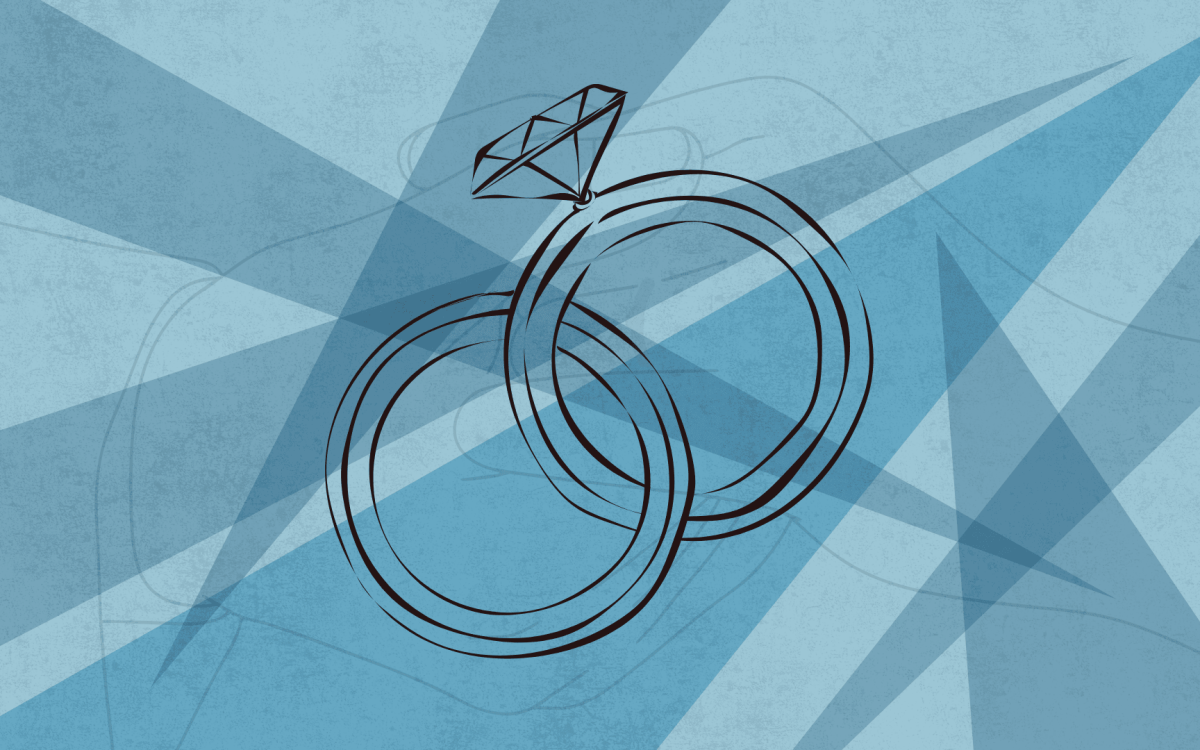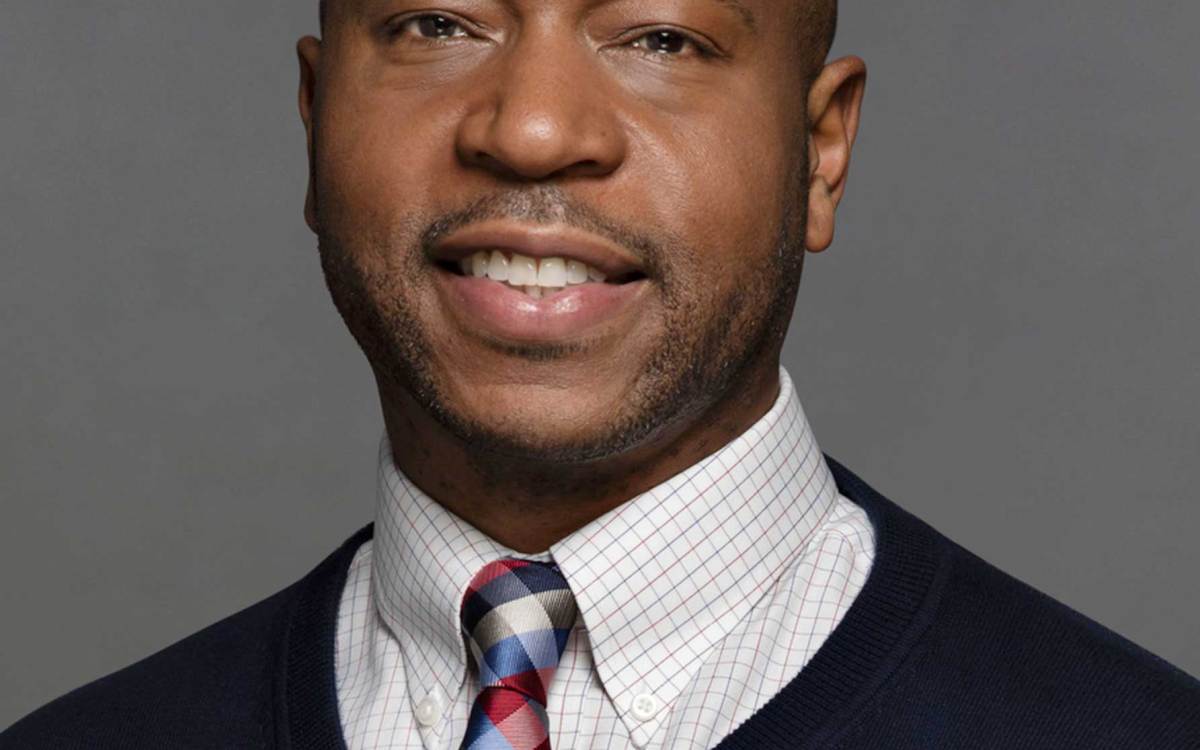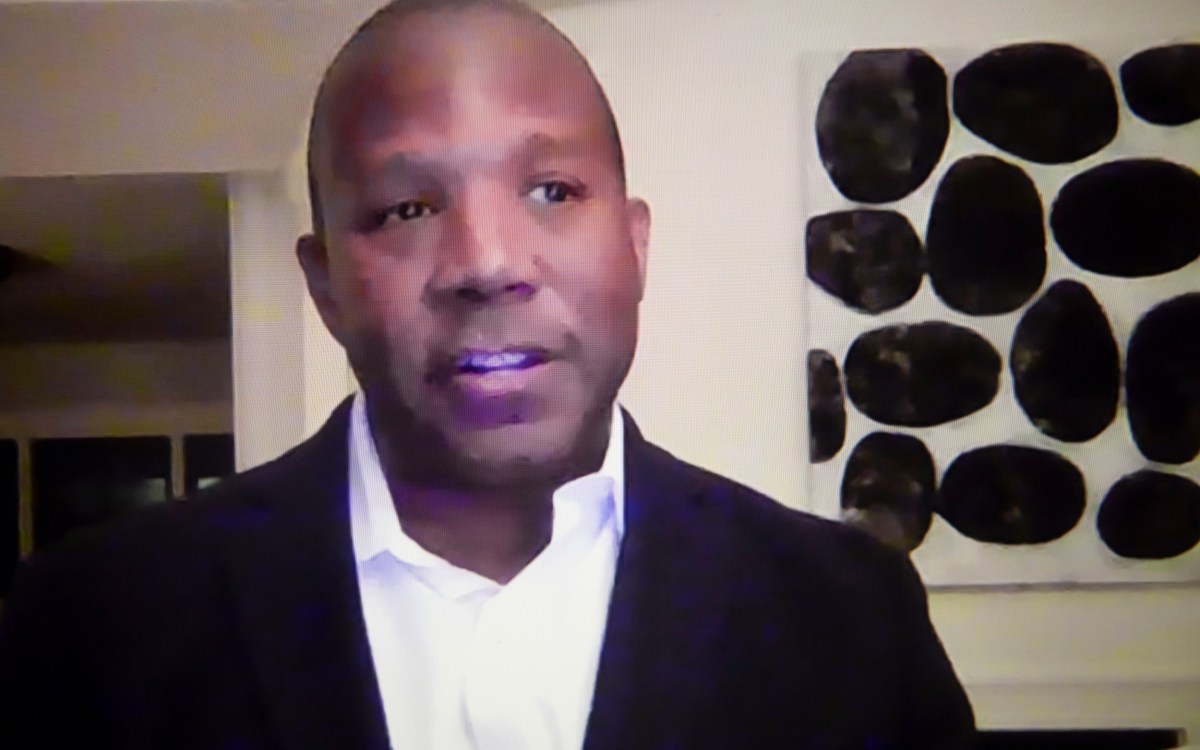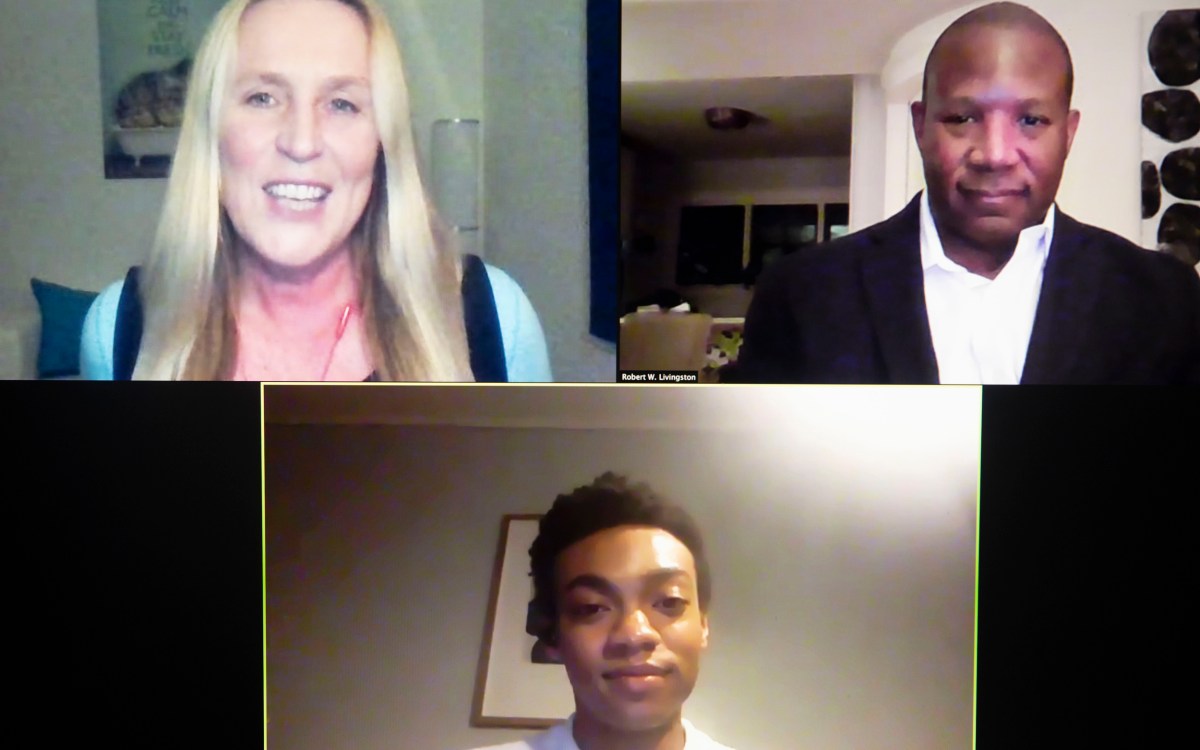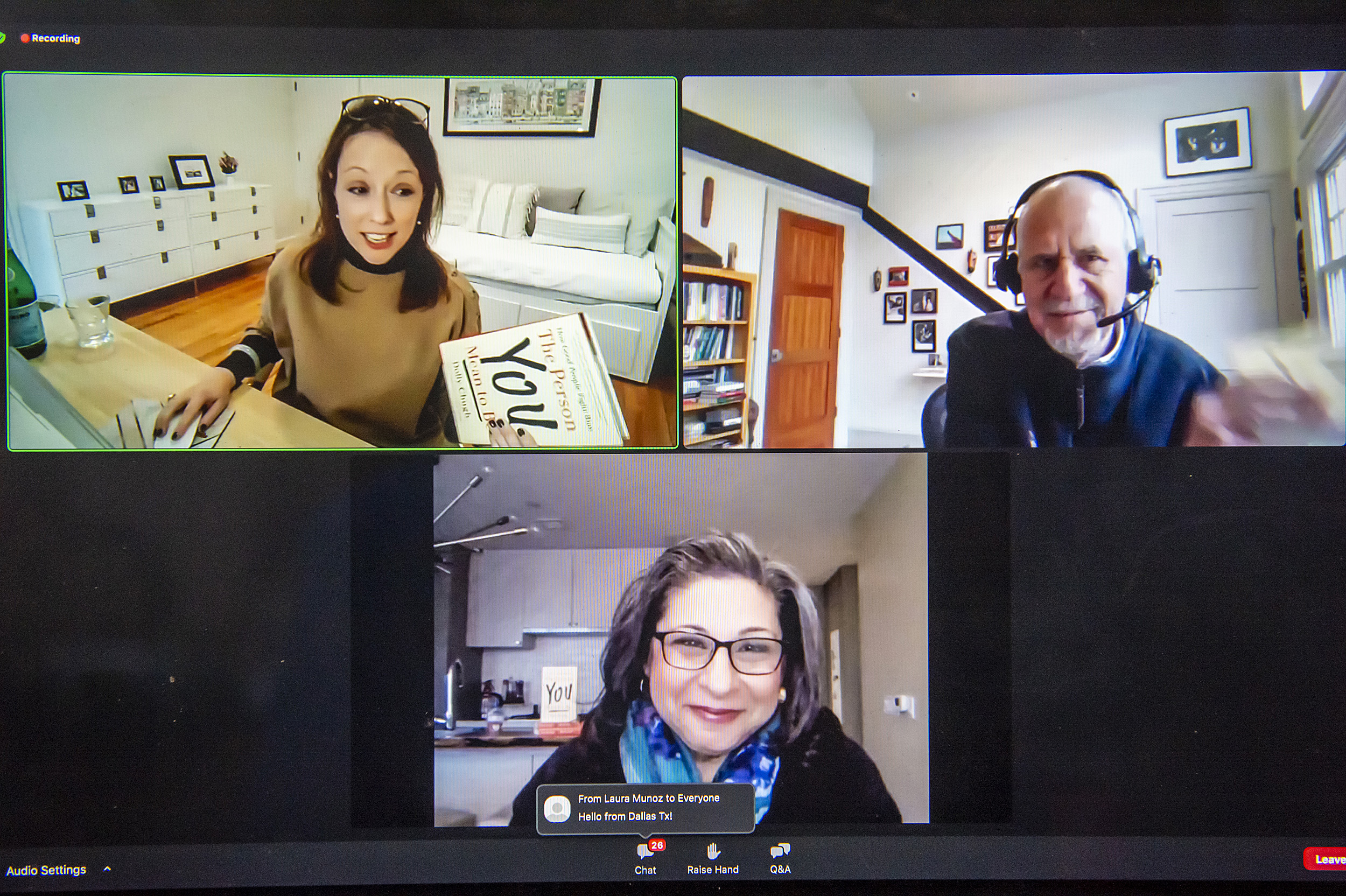
Dolly Chugh (bottom center) discusses her book, “The Person You Mean to Be” with Max Bazerman. The conversation was moderated by Nicole Bryant, managing director of the Program on Negotiation.
Jon Chase/Harvard Staff Photographer
Want to be a good person? Stop trying so hard.
Social psychologist Dolly Chugh says being perfect is impossible and it’s more productive to opt for ‘goodish’
It suggests something about the human desire to be good that during a recent online talk on the topic hosted by Harvard Law School’s Program on Negotiation, viewers tuned in from around the globe. In the Zoom chat area, audience members chimed in from Massachusetts and other states as well as far-flung countries such as Brazil, India, Ecuador, Spain, Peru, Saudi Arabia, Canada, and Russia.
It also suggests something that nearly 5 million people have watched the 2018 Ted Talk on the subject by Dolly Chugh, Friday’s featured speaker and author of “The Person You Mean to Be: How Good People Fight Bias.”
What it all points to is that people everywhere are looking for advice on how to lead virtuous lives. But for Chugh, a social scientist who studies the psychology of good people, the key to being a better person is to stop trying too hard and shoot for being “goodish” instead.
Chugh, who received both her M.B.A. in 1994 and Ph.D. in 2006 in organizational behavior/social psychology from Harvard, made her case during the discussion with Max Bazerman, her former adviser, Program on Negotiation executive committee member, and Jesse Isidor Straus Professor of Business Administration.
Bazerman’s work with Chugh involved the concept of bounded ethicality (ethical blind spots influenced by things, such as conflict of interest), ideas that would come to inform her book. During the lunchtime talk Bazerman had her explain some of the key barriers to being good and describe ways to get around them.
According to Chugh, being virtuous is such an impossible task because it’s based on the way so many of us define “good person” in narrow terms — someone who never makes mistakes and “shows no evidence of racism, sexism, homophobia, ageism, ableism, etc.”
“If that’s our definition of good person,” she said, “we will not pull it off. The evidence is clear that even if we explicitly can live up to that, implicitly, we will fall short.” Chugh used herself as a case study, noting how she had been called out by a student for a reading she had long assigned that was sexist and how during Zoom classes she would “sometimes confuse two Black students for each other who really looked nothing alike. I had some mental heuristic that I was grouping people together by race, and therefore making mistakes,” she said. “That’s not the person I need to be. I see myself as a good person.”
“When we make mistakes, rather than focusing on defending ourselves against this good-person identity just shattering, we are instead saying, ‘OK, there’s a moment for me to integrate that and do better the next time, to be goodish as a work in progress.’”
Dolly Chugh
Her impulse to defend her “good-person identity” when such unconscious bias or mistakes are pointed out, she added, highlights another hurdle at the “core of the psychology of good people.” They want so much to both think of themselves as exemplary and to be seen that way by others, they become defensive when challenged.
More like this
But there is a better way forward, said Chugh, who is also a professor at New York University’s Stern School of Business. She highlighted American psychologist Carol Dweck’s work on the concept of the “fixed mindset,” or what Chugh called a “brittle, good-person identity; either I am or I’m not” a good person. Such an approach, Chugh said, “means there’s no room for growth or feedback.” Instead, she champions Dweck’s “growth mindset,” which embraces the notion of using mistakes and feedback to continually improve.
“I call that being goodish,” said Chugh, “and in a goodish mindset … when we make mistakes, rather than focusing on defending ourselves against this good-person identity just shattering, we are instead saying, ‘OK, there’s a moment for me to integrate that and do better the next time, to be goodish as a work in progress.’”
Chugh also discussed the concepts of believers and builders. Believers put their faith in the data and science around a topic such as inequality and the ways in which systemic racism has led to “massive disparities on every meaningful life outcome for African Americans.” Builders “do not just believe those things, but are building the tools, the communities, the teams, the processes, the courage, the families and communities to take those beliefs and make [positive change] a reality.”
But, she stressed, it doesn’t have to be either/or. “We want to think of being a believer,” she explained, “as something that’s always in a goodish way working toward being a builder.”
Chugh’s concept of goodish also applies to the negotiating table. Those who adopt a fixed mindset are often unable to welcome other perspectives, something central to conflict management, she said, because their desire to defend their own identity as a virtuous person overwhelms them. By contrast, those who adopt a goodish approach are better able “to more deeply hear the interests of others,” while incorporating their own interests.
Chugh was asked how she avoids coming down too hard on herself when she fails to meet the high standards of goodness, and she replied that the word “yet” comes in handy.
Reminding yourself “I haven’t gotten this right yet, or I haven’t had the courage to do that yet, or I haven’t learned about those issues yet,” is so effective, said Chugh, because “it means that we can still get there.”
